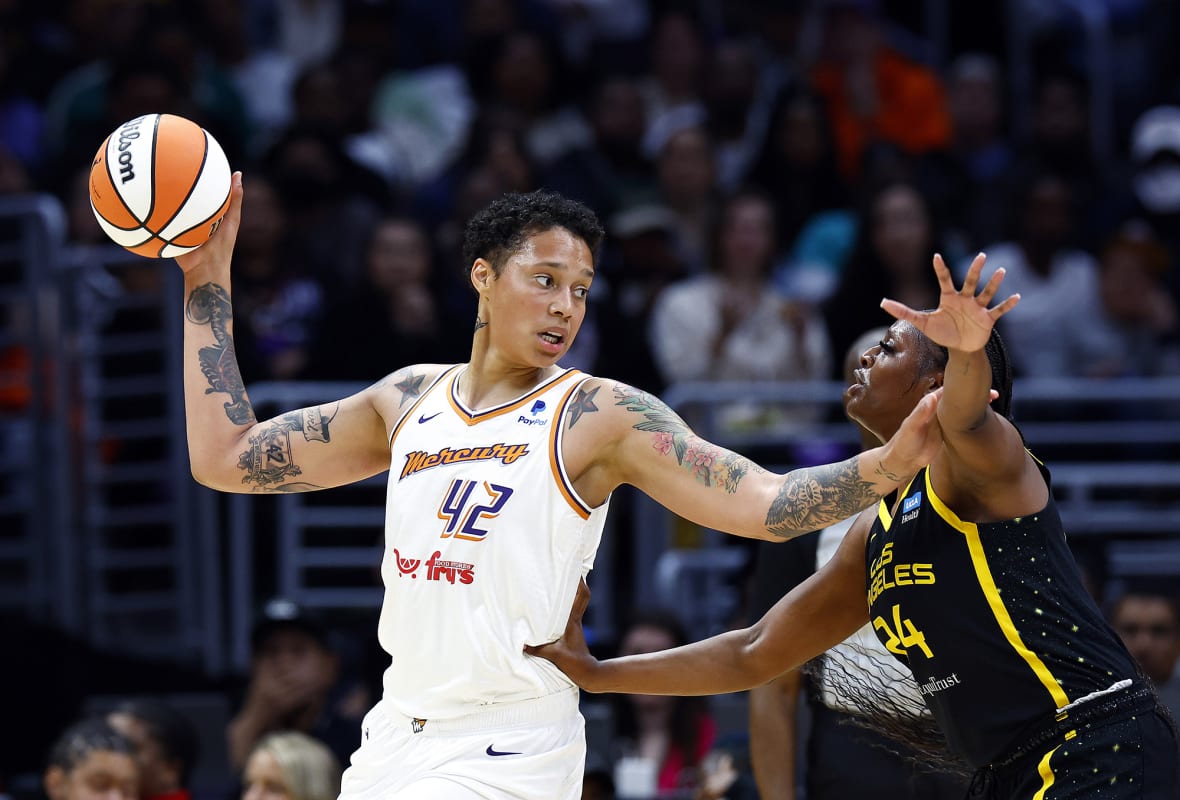Brittney Griner’s news story seemed to conclude in 2022, and her full personal story will not be told for several years. But ’23 was so much more than a bridge. It was a test of her spirit and will. It affirmed her standing in a sport that embraced her and challenged her place in a country that sometimes has not.
Griner returned to the WNBA after missing the 2022 season because—this is still such a jarring phrase—she was imprisoned in Russia. She was detained in February ’22 and then sentenced to nine years in prison for possession of vape cartridges with cannabis oil. She was freed at the end of last year—this is also jarring—in an exchange for an arms dealer called the Merchant of Death.

Ronald Martinez/Getty Images
Her year was a triumph, but not always a happy one. Griner wiped away tears before the tip-off of her first game, then scored 18 points. She was harassed at an airport by a right-wing media figure who yelled, “She hates America!” She dunked twice in the WNBA All-Star Game in July, but missed three games to take care of her mental health. She had security with her at all times and said she would no longer play overseas.
Griner has been a full-time star and sometime outcast since her days at Baylor, where she won a national championship but left with a frosty relationship with her coach, Kim Mulkey. Griner, who is gay, said that players had to keep their sexuality private under Mulkey. This year, a few days before Mulkey won her fourth national title—this time at LSU—the coach said of Griner, “I’m glad she’s safe, she’s sound.” But Mulkey also said they hadn’t spoken since Griner had been released.
Griner became a political prisoner for a minor offense and an object of criticism at home for a deal she did not make. This was supposed to be the year she returned to her normal life. If only it were that simple.







